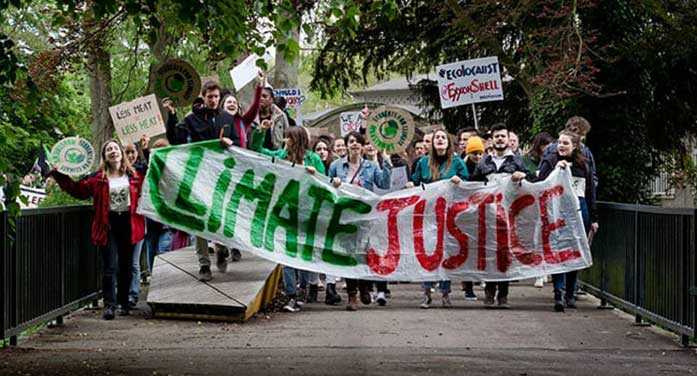 In the past several months, we’ve heard dire and angry imprecations and accusations from the new climate crusaders.
In the past several months, we’ve heard dire and angry imprecations and accusations from the new climate crusaders.
They demand total obeisance to their escalating demands. Any critics to their approach to catastrophic global warming are denounced as deniers or heretics.
A new religious-political-social movement has sprung out of this trend: Extinction Rebellion, with the role of secular saint played by the Swedish adolescent Greta Thunberg. They’ve disrupted government, public spaces and transportation in many places around the world. And they’re uncompromising in their demands to bring a swift end to fossil fuel use.
This movement has found sympathizers among the usual suspects: critics and opponents of free markets, capitalism and individual freedom.
But other than taxing and banning things, they propose no coherent and practical programs to bring about an economy that produces lower greenhouse gases.
There needs to be practical, economic, and socially and politically palatable means to curtail or reduce greenhouse gases.
Fortunately, several ways are within grasp, starting with a source of energy that can quickly supplant coal at electric power generation stations, and is already doing so.
Climate crusaders want to put an end to shale gas exploration but power generated by natural gas emits half as much CO2 as coal-fired power. Natural gas is abundant and cheap. And the international trade in natural gas is growing fast.
Organization for Economic Co-operation and Development (OECD) nations are expected to have much lower emissions in coming years, as a result of greater use of natural gas and renewable energy, and rising electrification of transportation.
The big increase in coal use is taking place entirely in the developing world, with 80 percent in China and India.
With some strategic investments and policy choices, natural gas could be a preferred fuel choice for power generation worldwide.
We can also lower emissions with better energy storage strategies. Hydrogen and methane fuel cells, lithium, vanadium redox, and other ‘flow’ batteries, hydraulic storage and compressed air all could help make electric utilities more efficient. These developments would also encourage more wind, solar, tidal and other renewable energy sources.
Buildings consume about 40 percent of all energy, through heating, air conditioning and ventilation systems. Higher building standards should make them more efficient, as would mini-grid options that more closely match supply and demand.
Better urban traffic flow would go a long way to reducing transportation fuel use. That means employing intelligent road grid management systems and introducing fees for those who wish or need to drive in areas of consistent heavy congestion.
A large amount of agricultural, food processing, food service and forestry products waste is left to rot, emitting significant greenhouse gases, including highly potent methane. Similarly, landfills and sewage treatment plants let large amounts of methane escape. A few cities capture this methane and use it, but more can be done in Canada and around the world.
Commercial, government, and other bus and truck fleets can be converted to compressed natural gas (CNG) or LNG, along with railways. This would result in a significant reduction in CO2 emissions and cleaner emissions in general.
Finally, the oft-overlooked proposal to plant one trillion trees over the next few decades is worth supporting. Depending on the species of trees and the latitudes they’re planted in, this could take trillions of tonnes of CO2 out of the atmosphere.
In addition, trade and investment sanctions could be imposed against nations that do little to stop deforestation or even promote it.
Politics is sometimes defined as the art of the possible. These emissions-conquering strategies certainly come with costs, but they’re all feasible, practical and would have vast positive impacts. In short, they are possible.
And they make far more sense than the drastic demands of climate warriors.
Ian Madsen is a senior policy analyst with the Frontier Centre for Public Policy.
Ian is a Troy Media contributor. Why aren’t you?
The views, opinions and positions expressed by columnists and contributors are the author’s alone. They do not inherently or expressly reflect the views, opinions and/or positions of our publication.


